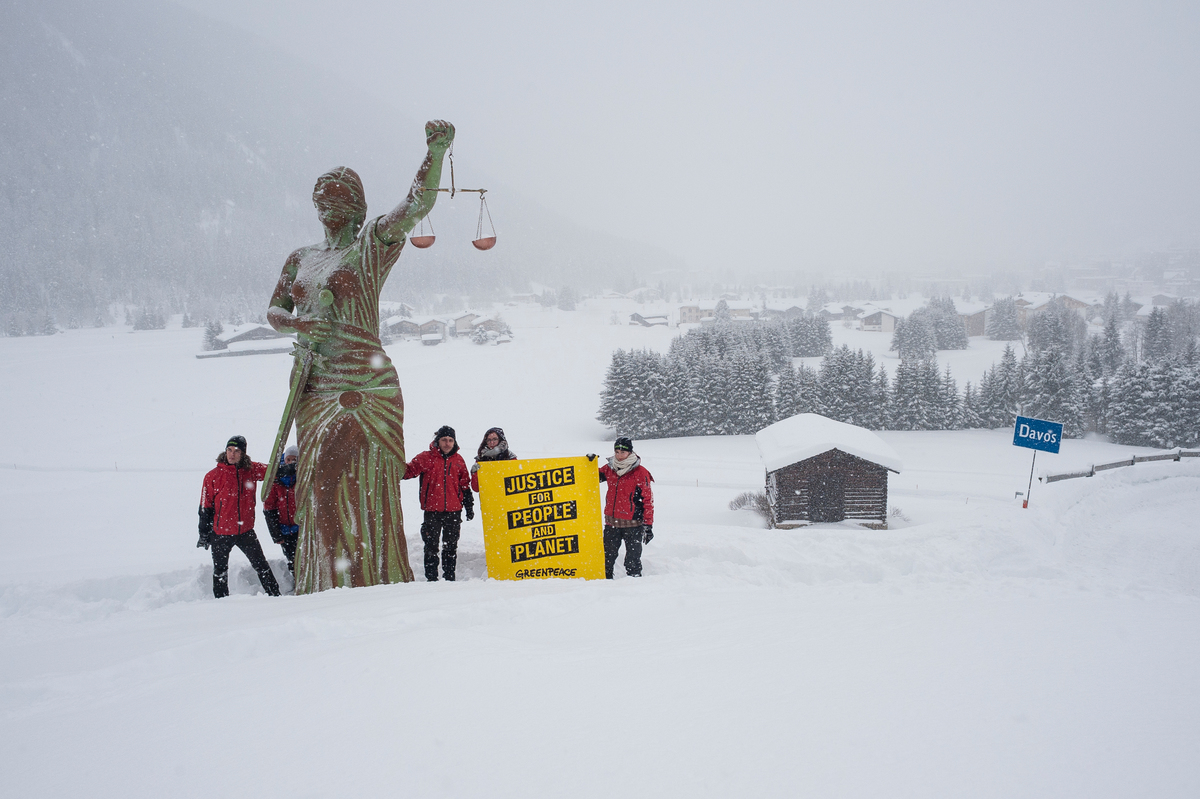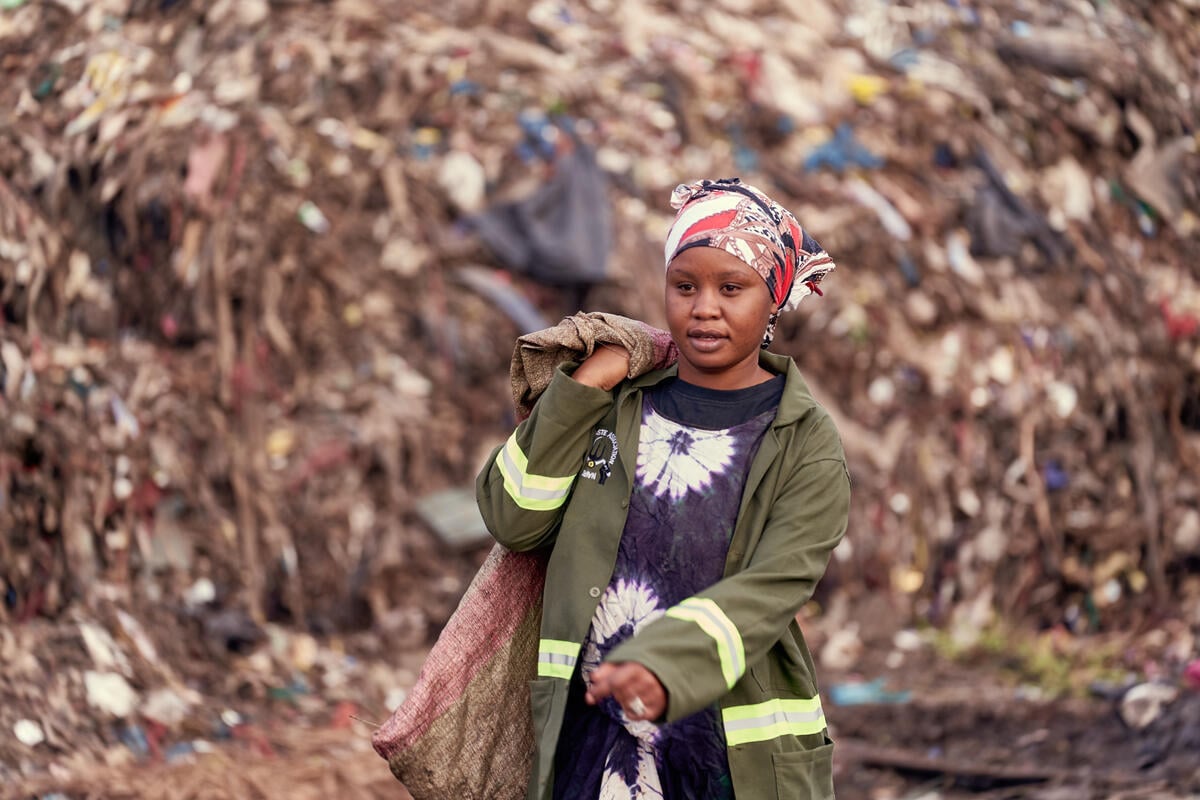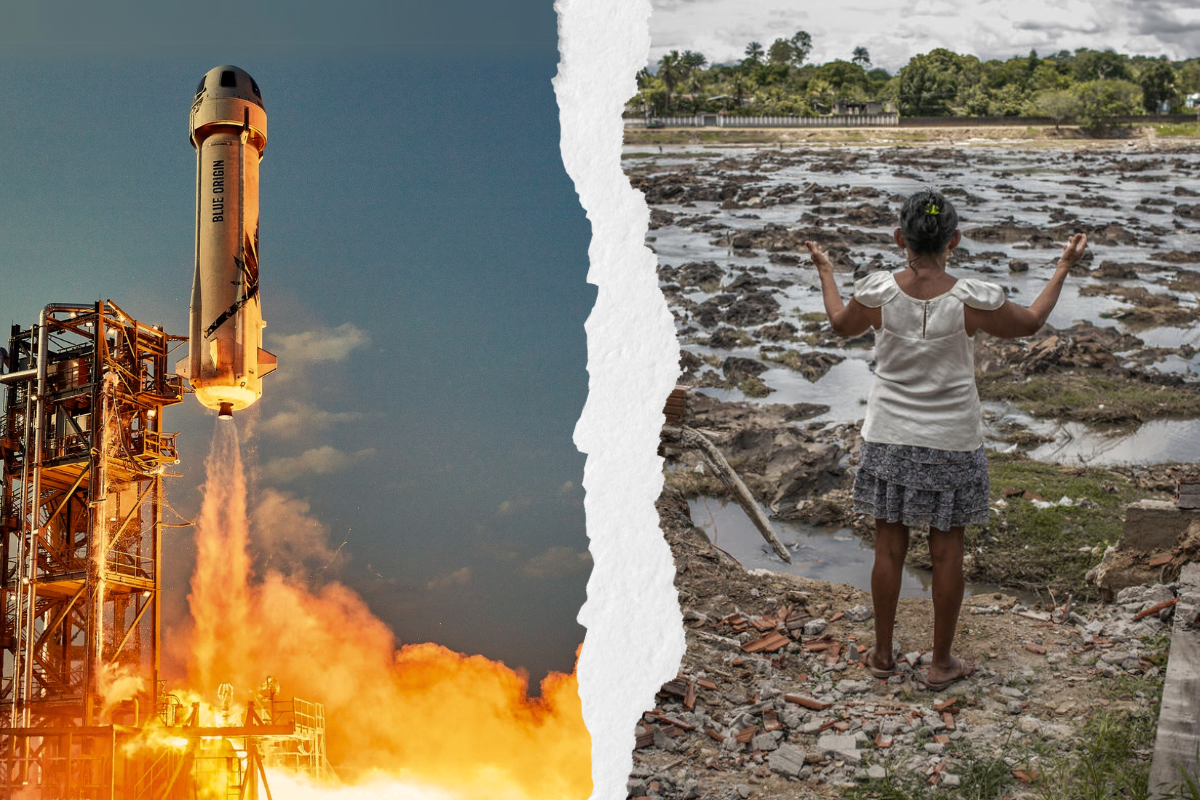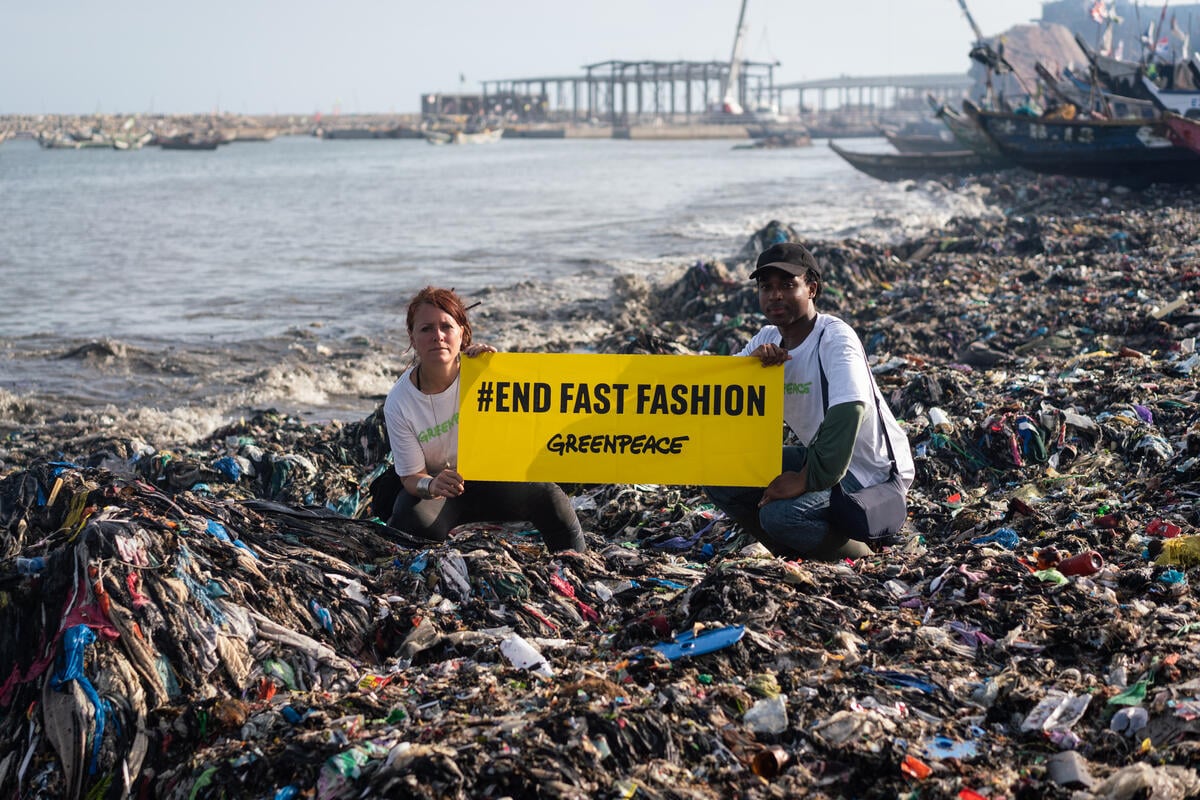Greenpeace is famous for campaigning against corporations.
We made “Choke” out of Coca-Cola’s logo to draw attention to the massive plastic pollution impact they have around the world.

Polar bear hijacks Coke’s holiday advertising in London. 5 Dec, 2017
We stand in the way of imports of dirty cars and expose corporate misbehaviour wherever we encounter it.
The public image of Greenpeace is often one of “corporate bashers”. We can indeed be pretty harsh and irreverent when calling attention to corporate misdeeds, like in this satire video.
Of course, we don’t believe that everyone in a corporation thinks like the man in the video. There are many in business – and many businesses – that want to do the right thing for people and planet. We applaud them.
Greenpeace never says no without offering an alternative. We are so committed to getting the solutions our world needs adopted fast, that we are, at times, willing to praise corporations that are still part of the problem.
We’ll say “well done” to Coca Cola for eliminating climate damaging refrigerants from their cooling equipment because it benefits our climate and future generations. But we do so in the context of us demanding more fundamental change. And we do so at the very same time as we campaign against them on plastic pollution.
We have “no permanent friends or enemies”. That’s part of our core values – and it works to achieve change. The work with Coca-Cola to eliminate climate damaging gases, for example, also started as a brand jam when they were providing the “green Sydney Olympics” with cooling equipment that destroyed our climate.

Campaign against the use of HFCs in fridges by the Sydney Olympics sponsor, Coca-Cola. 14 Jun, 2000
It’s a fact, though, that corporations who misbehave are too rarely punished – and too often have captured our political leaders. The public good – our planet, our future – is the loser.
You can see that clearly in our new report Justice for People and Planet, which showcases 20 case studies of corporate capture, collusion and impunity. The report describes how some corporations have abused and violated human and environmental rights around the world. The examples are as shocking as they are diverse, ranging from deforestation, water and air pollution, plastic pollution, or waste dumping, to chemical spills, nuclear disaster, violations of Indigenous rights and more.
The report argues that it is the rules that govern our global economy (and lack thereof) that are the real reason behind such corporate misdeeds. Economic globalisation has created significant governance gaps. There are no enforceable social and environmental global rules governing global economic players.
That we lack these rules to deliver a sustainable and fair economy worldwide is the result of specific political choices by our leaders. The cases presented in our report show that corporate impunity for environmental destruction and human rights violations is a result of the current economic and legal systems.
The failure to protect human rights and the environment is often caused by state institutions and decision-makers being captured by specific corporate interests. This all too often leads to politicians failing to pass binding laws and failing to ensure corporations are held to account.
There is a different way. Effective state action could end corporate capture and close the governance gap. Global regulations with teeth are clearly possible – they exist! The World Trade Organisation, for example, can sanction countries that break its rules.
We need similarly strong roles for the environment and human rights. That’s why we’re putting forward 10 Principles for Corporate Accountability:
- People and the environment, not corporations, must be at the heart of governance and public life.
- Public participation should be inherent to all policy making.
- States should abandon policies that undermine environmental and human rights.
- Corporations should be subject to binding rules both where they are based and where they operate.
- States should require due diligence reporting and cradle to grave responsibility for corporate products and services.
- States should promote a race to the top by prohibiting corporations from carrying out activities abroad which are prohibited in their home state for reasons of risks to environmental or human rights.
- States should create policies that provide transparency in all corporate and government activities that impact environmental and human rights, including in trade, tax, finance and investment regimes.
- Corporations and those individuals who direct them should be liable for environmental and human rights violations committed domestically or abroad by companies under their control.
- People affected by environmental and human rights violations should be guaranteed their right to effective access to remedy, including in company home states where necessary.
- States must actually enforce the regulatory and policy frameworks they create.
You can find much more detail about these principles (and why they are needed) in the report itself.
And you can, like us, take heart in some steps in the right direction that are already underway: France, recently required corporations to identify potential risks to people and the environment as a result of their activities, and act to prevent harm to people and the environment.
Switzerland is gearing up for a people’s referendum that would legally oblige corporations to incorporate respect for human rights and the environment in all their business activities.
New specialised laws such as the UK’s Modern Slavery Act also require businesses to tackle slavery and human trafficking in their supply chains.
All these show how governments can make rules with teeth to govern corporate activities around the world. If they want to.

Statue of Justice Activity in Davos
A more just and sustainable world is possible. If all who want a livable planet push for it – together. Are you in?
Daniel Mittler is the Political Director of Greenpeace International



